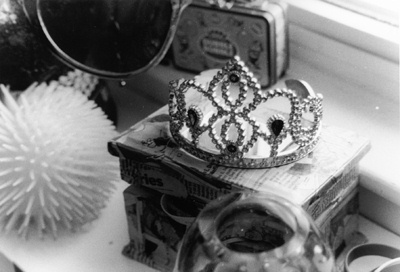All Nonfiction
- Bullying
- Books
- Academic
- Author Interviews
- Celebrity interviews
- College Articles
- College Essays
- Educator of the Year
- Heroes
- Interviews
- Memoir
- Personal Experience
- Sports
- Travel & Culture
All Opinions
- Bullying
- Current Events / Politics
- Discrimination
- Drugs / Alcohol / Smoking
- Entertainment / Celebrities
- Environment
- Love / Relationships
- Movies / Music / TV
- Pop Culture / Trends
- School / College
- Social Issues / Civics
- Spirituality / Religion
- Sports / Hobbies
All Hot Topics
- Bullying
- Community Service
- Environment
- Health
- Letters to the Editor
- Pride & Prejudice
- What Matters
- Back
Summer Guide
- Program Links
- Program Reviews
- Back
College Guide
- College Links
- College Reviews
- College Essays
- College Articles
- Back
Society's Beauty Standards
Looking at yourself in the mirror nowadays has begun sprouting questions such as whether you are “good enough” or “pretty enough”. Society affects our ideas of beauty; we cannot look at ourselves a certain way unless other people around us accept who we want to be. Generic opinions become standards and the world dictates our style and what we think of as beautiful.
The definition of beauty Google provides is: “1) a combination of qualities, such as shape, colour, or form, that pleases the aesthetic senses, especially the sight. and 2) a beautiful or pleasing thing or person, in particular”. Both definitions suggest beauty is subjective, what one person might find pleasing or beautiful, is what someone else might find quite the opposite -for example some people might like chocolate, and others cannot stand it- yet there are traits that society seems to implement upon people nowadays. These traits include: a fit or thin body, a proportionate face, and other feminine or masculine traits that appeal to the vast majority of the population.
Society sets beauty standards for people, and those who meet these standards seem to be more successful in their career, as well as their family life. Studies conducted on the topic say that “attractive people earn about 5% more than average-looking people” (Opdycke, Teresa), which is genuinely shocking since people are earning money based on how good they look, or how attractive they are to their bosses, rather than for their actual abilities. This fact can also contribute to discrimination in the work area since some people are getting paid more because of their looks, and the other average looking majority is getting paid not based on their appearance, but their skill.
Psychologically, the Halo Effect is one of the components associated with us favouring the more attractive people. “The Halo Effect is a type of cognitive bias, in which our impressions about a person may influence the way we think about their character” ("Why We Think Good Looking People Are Also Smart, Funny, and Kind.") hence the better looking people are viewed as better people in general, leading us to believe they are kinder, or more intelligent than the other average looking group of people.
The beauty standards society enforces upon the population become beauty standards we enforce upon ourselves; they may lead to discrimination, and people trying to alter themselves. Discrimination can vary from a small comment against the less attractive people to huge issues, such as struggling to get or maintain a job; consequently, many people try to alter their looks with things such as make up, or even plastic surgeries, but yet they are still judged when they do so.
Perhaps the solution to these problems would be that the society should stop forcing people into tiny, little frames, and try to change them to fit specific requirements or to be pleasing to everyone. Society should let people be. We should let people be.
Works Cited
Opdycke, Teresa. "Attractive People: How Society Defines Physical Attractiveness." Attractive People: How Society Defines Physical Attractiveness. N.p., 2008. Web. 14 Dec. 2015.
"Why We Think Good Looking People Are Also Smart, Funny, and Kind."About.com Health. N.p., 21 Oct. 2014. Web. 14 Dec. 2015.

Similar Articles
JOIN THE DISCUSSION
This article has 0 comments.
